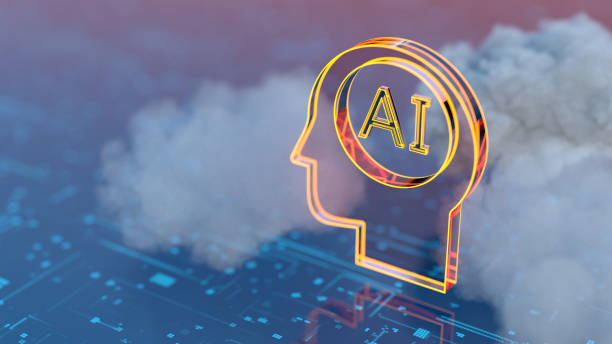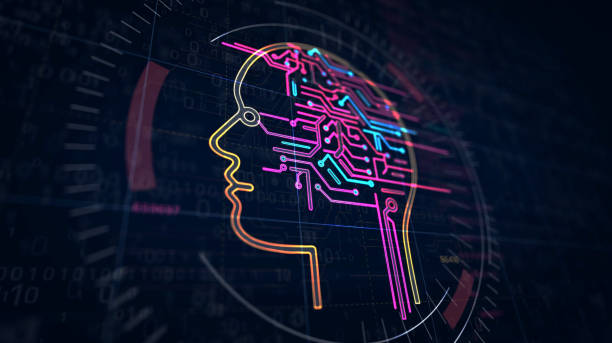What is an AI Assistant and what are its applications?
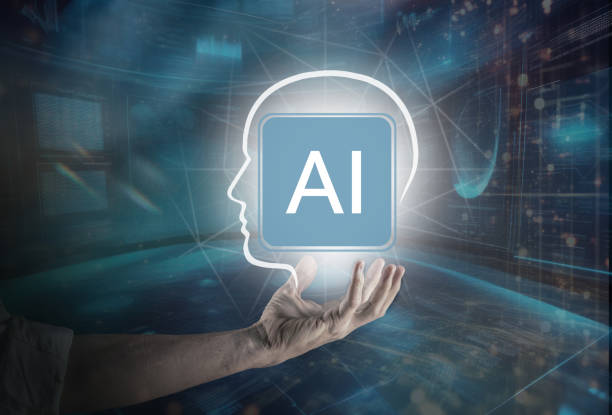
An AI Assistant is a computer program or software designed using Artificial Intelligence and Natural Language Processing (NLP) to help users perform various tasks.
These tasks can include answering questions, providing information, performing calculations, planning, time management, and even content creation.
AI assistants essentially strive to make human interaction with computers more natural and efficient.
#AI_Assistant has applications in various fields.
For example, in business, they can help customers find the products or services they need, answer frequently asked questions, and even place orders.
In education, AI assistants can help students learn new concepts, correct exercises, and provide personalized feedback.
In healthcare, they can assist patients with medication management, appointment reminders, and medical information.
Also, in daily life, AI assistants can help users with simple tasks such as setting reminders, playing music, and controlling smart home devices.
AI assistants analyze data and language patterns, improving over time in understanding user needs and providing more accurate responses.
This ability to learn and adapt is one of the key features of AI assistants that distinguishes them from other computer programs.
Overall, an AI assistant is a powerful tool that can help individuals and organizations increase productivity, improve service quality, and reduce costs.
Lagging behind large online stores?
Rasaweb makes your business online with professional e-commerce website design and increases your market share!
✅ Increased brand credibility and customer trust
✅ Easy shopping experience leading to more sales
⚡ Contact us now for a free website design consultation!
Types of AI Assistants by Platform

AI assistants can be categorized based on the platform they run on.
Some of the most common types of AI assistants include:
Voice Assistants: These assistants interact with users via voice.
Famous examples include Amazon Alexa, Google Assistant, and Apple Siri.
Users can interact with these assistants through voice commands to perform tasks such as playing music, setting reminders, searching for information, and controlling smart home devices.
Text-based Assistants: These assistants interact with users via text.
These assistants are typically found as chatbots on websites, applications, and messaging platforms.
Users can ask these assistants questions in text form and receive answers.
These assistants are often used to provide customer support, answer frequently asked questions, and guide users on websites.
A text-based AI assistant is a powerful tool for interacting with customers and providing services to them.
Visual Assistants: These assistants interact with users via images and videos.
These assistants are typically found in image recognition and augmented reality applications.
Users can interact with these assistants through their smartphone camera to get information about objects and their surroundings.
For example, a visual assistant can help a user identify a plant, recognize a historical monument, or find a product.
Each of these types of AI assistants has its own advantages and disadvantages and is suitable for different applications.
Choosing the right type of AI assistant depends on the user’s needs and preferences.
Important Criteria for Choosing an AI Assistant

Choosing the right AI assistant can significantly impact your productivity and efficiency.
Here are some important criteria for choosing a suitable AI assistant:
Capabilities and Features: Different AI assistants have different capabilities and features.
Some are designed to answer general questions, while others are optimized for specific tasks such as planning, time management, or content creation.
Before choosing an assistant, make sure its capabilities and features match your needs.
For example, if you need an assistant to answer specialized questions in a specific field, you should choose an assistant with sufficient knowledge and expertise in that area.
Accuracy and Reliability: Accuracy and reliability are two important criteria for evaluating an AI assistant.
An assistant should be able to answer your questions correctly and complete your tasks thoroughly.
Before choosing an assistant, check reviews and feedback from other users and make sure they are satisfied with its accuracy and reliability.
You can also evaluate the assistant’s accuracy and reliability yourself by performing a few simple tests.
Ease of Use: Using an AI assistant should be easy and hassle-free.
The assistant’s user interface should be simple and understandable, and commands should be easy to execute.
If an assistant is complex and difficult to use, you will likely give up on it.
Before choosing an assistant, make sure it is easy for you to use.
Privacy and Security: AI assistants usually have access to your personal information.
Therefore, the privacy and security of your information should be important to you.
Before choosing an assistant, carefully read its privacy policy and make sure it protects your information properly.
Also, ensure that the assistant uses appropriate security protocols to protect your information from hackers and other cyber threats.
Cost: Different AI assistants have different costs.
Some are free, while others require a subscription.
Before choosing an assistant, consider its cost and make sure it fits your budget.
Also, remember that some free assistants may have limited capabilities and features.
Ultimately, choosing a suitable AI assistant depends on your needs and preferences.
By considering the above criteria, you can choose a suitable AI assistant for yourself and benefit from its advantages.
| Feature | Description |
|---|---|
| Answering Questions | Ability to answer general and specialized questions |
| Performing Tasks | Ability to perform various tasks such as planning and reminders |
| Accuracy | Accuracy in answering and performing tasks |
| Ease of Use | Ease of use of the user interface |
How to Train and Personalize an AI Assistant

One of the most important aspects of using an AI assistant is training and personalizing it.
By training and personalizing the assistant, you can configure it to best meet your needs.
There are various ways to train and personalize an AI assistant:
Providing Feedback: When the AI assistant answers your question or performs a task, provide feedback.
If the assistant’s answer was correct, confirm it.
If the assistant’s answer was incorrect, correct it.
By providing feedback, you help the assistant improve its understanding of your needs and provide more accurate responses.
This feedback can be provided directly through the assistant’s user interface or indirectly through your use of the assistant’s responses.
Personal Settings: Most AI assistants provide personal settings.
Using these settings, you can adjust various aspects of the assistant to suit your preferences.
For example, you can set the assistant’s language, voice, and the type of information it provides.
These settings help you improve your user experience and use the assistant more effectively.
Settings can also include privacy settings.
Continuous Use: The more you use the AI assistant, the more it becomes familiar with your needs and provides better responses.
Continuous use of the assistant helps it identify your behavioral patterns and predict what information you need.
Also, continuous use of the assistant helps you become familiar with its various capabilities and features and use it more effectively.
Using APIs: If you have technical knowledge, you can use AI assistant APIs to train and personalize it.
APIs allow you to interact directly with the assistant and add new capabilities to it.
For example, you can use APIs to connect the assistant to other applications and services.
By doing this, you can assign more complex tasks to the assistant and use it more effectively.
AI Assistant can be easily personalized using APIs.
By using the above methods, you can train your AI assistant and personalize it to best meet your needs.
Training and personalizing the assistant is key to greater productivity and efficiency.
Are your e-commerce website visitors leaving before buying? Don’t worry anymore! With Rasaweb’s professional e-commerce website design services, solve the problem of not converting visitors into customers forever!
✅ Significantly increase conversion rates and sales
✅ Unparalleled and engaging user experience
⚡ Contact us now for a free consultation!
Maintaining Privacy When Using an AI Assistant
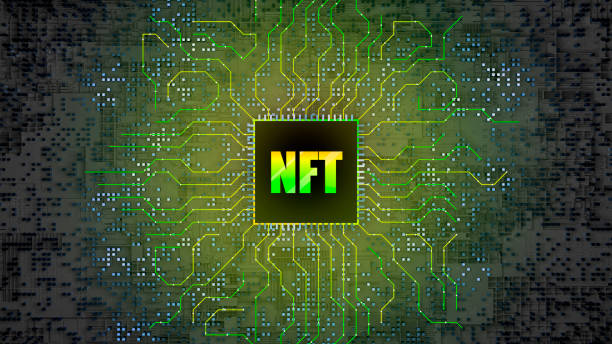
Using AI assistants can offer many benefits, but at the same time, it raises privacy concerns.
AI assistants typically have access to your personal information, including information related to your voice, text, location, and activity history.
This information can be used for various purposes, including providing better services, targeted advertising, and even monitoring your behavior.
Therefore, maintaining privacy when using an AI assistant is very important.
To protect your privacy when using an AI assistant, you can take the following steps:
Read the Privacy Policy: Before using an AI assistant, carefully read its privacy policy.
Make sure the assistant’s privacy policy aligns with your expectations and properly protects your information.
In particular, pay attention to these points:
- What type of information does the assistant collect?
- How is this information used?
- Is your information shared with third parties?
- How can you access and correct your information?
- How can you prevent the collection of your information?
Privacy Settings: Most AI assistants provide privacy settings.
Using these settings, you can limit the amount of information the assistant collects and control how this information is used.
For example, you can disable the collection of information related to your voice, location, and activity history.
Use Encryption: To protect your information from hackers and other cyber threats, use encryption.
Encryption converts your information into unreadable code that can only be read using a decryption key.
Most AI assistants use encryption to protect your information.
By using an AI assistant, you can encrypt your information.
Awareness of Risks: Be aware that using AI assistants can pose risks to your privacy.
For example, your information may be stolen by hackers, used by advertising companies for advertising purposes, or used by governments to monitor your behavior.
By being aware of these risks, you can take the necessary steps to protect your privacy.
By following the above tips, you can protect your privacy when using an AI assistant and benefit from its advantages.
The Future of AI Assistants

AI assistants are rapidly advancing and are expected to play a more significant role in our lives in the future.
Here are some predictions about the future of AI assistants:
Smarter and More Efficient: AI assistants will become smarter and more efficient in the future.
They will be able to better understand our needs and provide more accurate and relevant responses.
They will also be able to perform more complex tasks and help us solve difficult problems.
AI assistants can become much smarter in the near future.
More Personalized: AI assistants will become more personalized in the future.
They will be able to learn our individual preferences and needs and tailor their services based on this information.
For example, a personalized AI assistant can provide recommendations on movies, music, books, and other products and services that we may be interested in.
Greater Integration into Our Lives: AI assistants will become more integrated into our lives in the future.
They will be present in various devices such as smartphones, tablets, computers, cars, and smart homes.
This integration will allow us to easily access AI assistants anytime and anywhere.
More Important Role in Business: AI assistants will play a more important role in business in the future.
They can help companies provide better customer service, increase productivity, and reduce costs.
For example, AI assistants can be used to answer customer questions, provide technical support, and perform repetitive tasks.
Ethical Concerns: The advancement of AI assistants also raises new ethical concerns.
For example, there is a concern that AI assistants may be used for malicious purposes, such as spreading misinformation, discriminating against specific groups, or monitoring individuals’ behavior.
Therefore, it is necessary to pay attention to ethical issues as AI assistants develop and prevent the misuse of this technology.
Proper use of an AI assistant leads to the advancement of humanity.
AI Assistant and its Impact on Jobs

The emergence of AI assistants has had significant impacts on the job market and the nature of jobs, and this trend will intensify in the future.
Some of these impacts include:
Automation of Repetitive Tasks: AI assistants are capable of automating many repetitive and routine tasks.
This reduces the need for human labor for these types of tasks.
Jobs such as data entry, order processing, and answering frequently asked questions are among those severely affected by automation.
Creation of New Job Opportunities: While some jobs face the risk of being replaced by AI assistants, new job opportunities are also being created in the development, maintenance, and training of these systems.
Jobs such as AI engineering, data analyst, and AI assistant training specialists are growing.
Changing Nature of Jobs: Many jobs require a change in nature and upskilling to coexist with AI assistants.
Instead of performing routine tasks, employees must focus on analytical, creative, and interpersonal skills.
These skills are essential for managing and overseeing the performance of AI assistants and solving problems they cannot solve.
Increased Productivity and Efficiency: AI assistants can help employees perform their tasks and increase their productivity and efficiency.
For example, AI assistants can quickly find necessary information, prepare reports, and make data-driven decisions.
This allows employees to focus on more important and strategic tasks.
Need for Continuous Learning: To succeed in the future job market, individuals must prioritize continuous learning and acquiring new skills in AI and related technologies.
Online courses, workshops, and conferences can help individuals acquire these skills.
AI assistant and how to work with it must be learned.
Ultimately, the impact of AI assistants on jobs depends on how individuals and organizations prepare for these changes.
By learning new skills and adapting to new technologies, one can benefit from the opportunities created by AI assistants and avoid potential risks.
Comparison of Popular AI Assistants in [Current Year]

In [Current Year], several popular AI assistants are available, each with its unique features and capabilities.
Here is a comparison of some of these assistants:
Google Assistant: Developed by Google, this AI assistant is available on a wide range of devices, including smartphones, smart speakers, and cars.
Google Assistant is known for its high accuracy in voice recognition, fast response, and access to extensive Google information.
This assistant can perform tasks such as playing music, setting reminders, sending messages, controlling smart home devices, and searching for information.
Amazon Alexa: Developed by Amazon, this AI assistant is primarily available on Echo smart speakers and other Amazon devices.
Alexa is known for its proficiency in controlling smart home devices, online shopping, and music playback.
This assistant can perform tasks such as turning lights on and off, adjusting thermostats, ordering items from Amazon, and playing music from various services.
Apple Siri: Developed by Apple, this AI assistant is available on Apple devices including iPhone, iPad, Mac, and Apple Watch.
Siri is known for its deep integration with the Apple ecosystem, answering general questions, and performing simple tasks.
This assistant can perform tasks such as sending messages, setting reminders, making phone calls, and searching for information.
Microsoft Cortana: Developed by Microsoft, this AI assistant is available on Windows devices, smartphones, and smart speakers.
Cortana is known for its integration with Microsoft services, task reminders, and personalized information.
This assistant can perform tasks such as sending emails, setting appointments, tracking news, and providing traffic information.
Choosing the Best AI Assistant: Choosing the best AI assistant depends on individual needs and preferences.
If you are looking for an assistant that is widely available and has access to a lot of information, Google Assistant is a good choice.
If you are looking for an assistant that is proficient in controlling smart home devices, Alexa is a good choice.
If you use Apple devices, Siri is a good choice.
And if you use Microsoft services, Cortana is a good choice.
Choose your suitable AI assistant with research.
| AI Assistant | Developer | Key Features | Supported Devices |
|---|---|---|---|
| Google Assistant | Search, quick response, voice recognition | Smartphones, speakers, cars | |
| Amazon Alexa | Amazon | Smart home control, online shopping | Echo speakers, Amazon devices |
| Apple Siri | Apple | Integration with Apple ecosystem | iPhone, iPad, Mac |
| Microsoft Cortana | Microsoft | Integration with Microsoft services | Windows, smartphones |
Research shows that 80% of customers trust companies with professional websites more. Does your current website attract this trust?
With Rasaweb’s corporate website design services, solve the problem of customer distrust and weak online image forever!
✅ Create a professional image and increase customer trust
✅ Attract more sales leads and business growth
⚡ Get a free consultation now
Challenges and Limitations of AI Assistants
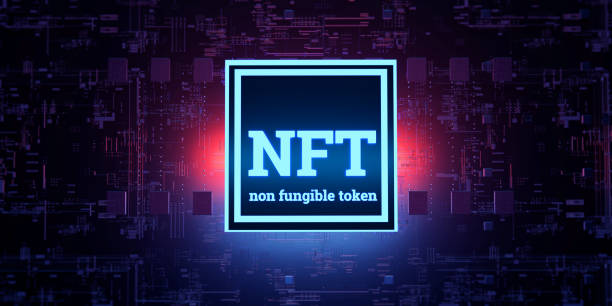
While AI assistants offer many benefits, there are also challenges and limitations that need to be considered:
Limited Understanding of Natural Language: AI assistants still struggle with a complete understanding of natural language.
They may not be able to understand complex phrases, colloquialisms, and subtle nuances in meaning.
This can lead to incorrect or irrelevant responses.
Need for Large Amounts of Data: AI assistants require a large amount of data to learn and improve their performance.
This data is often collected from users and can raise privacy concerns.
Also, if the training data is incomplete or biased, the AI assistant may provide biased or discriminatory responses.
Dependence on Internet Connection: Many AI assistants require an internet connection to perform their tasks.
This can be problematic in areas with weak or non-existent internet access.
Also, dependence on the internet can raise concerns about security and privacy.
Lack of Contextual Awareness: AI assistants often struggle to understand the context of a conversation.
They may not be able to recall previous information or understand the connection between different phrases.
This can lead to irrelevant or repetitive responses.
Ethical Issues: The use of AI assistants can raise various ethical issues.
For example, there is a concern that AI assistants may be used to spread misinformation, deceive users, or replace human labor.
Therefore, it is necessary to pay attention to ethical issues as AI assistants develop and prevent the misuse of this technology.
An AI assistant faces certain limitations.
By being aware of these challenges and limitations, AI assistants can be used responsibly and effectively.
Tips and Tricks for Optimal Use of an AI Assistant

To make optimal use of an AI assistant and fully benefit from its capabilities, you can use the following tips and tricks:
Use Clear and Precise Phrases: When talking to an AI assistant, use clear and precise phrases.
Avoid using slang, ambiguous phrases, and long, complex sentences.
The clearer and more precise your phrase, the more likely the AI assistant is to correctly understand your request.
Provide Sufficient Information: When requesting information or performing tasks, provide sufficient information to the AI assistant.
For example, if you want the AI assistant to set an appointment, specify the date, time, and location of the appointment completely.
The more information you provide, the more effectively the AI assistant can perform your tasks.
Use Voice Commands: Many AI assistants support voice commands.
Using voice commands can be faster and easier than typing.
To use voice commands, you must first ensure that your device supports this feature and then activate voice commands.
Personalize Settings: Many AI assistants provide options for personalizing settings.
By personalizing the settings, you can adjust the behavior and performance of the AI assistant according to your needs and preferences.
For example, you can adjust the language, voice, and type of information the AI assistant provides.
Trial and Error: The best way to learn how to use an AI assistant is through trial and error.
By experimenting with different commands and tasks, you can become familiar with the AI assistant’s capabilities and learn how to use it more effectively.
Update Software: To benefit from the latest features and improved performance of the AI assistant, regularly update its software.
Software updates typically include bug fixes, security enhancements, and the addition of new features.
By optimally using an AI assistant, you can save time.
Frequently Asked Questions
| Number | Question | Answer |
|---|---|---|
| 1 | What is an AI assistant? | An AI assistant is a software program that uses artificial intelligence to help users perform various tasks, provide information, or automate processes. |
| 2 | What are examples of AI assistants? | Famous examples include Siri, Google Assistant, Alexa, and Cortana. |
| 3 | How does an AI assistant work? | AI assistants typically use natural language processing (NLP) to understand user voice or text commands and machine learning to improve their performance. |
| 4 | What capabilities does it have? | Capabilities such as answering questions, setting reminders, playing music, sending messages, controlling smart devices, and providing weather information. |
| 5 | How is data security handled in AI assistants? | Data security is an important concern. Companies strive to protect user data using encryption and privacy policies, but users should always be aware of potential risks. |
| 6 | Can AI assistants understand emotions? | Currently, AI assistants cannot understand real emotions, but they can detect tone and words related to emotions and provide appropriate responses. |
| 7 | What are the applications of AI assistants in the workplace? | In the workplace, they can be used for scheduling meetings, managing emails, searching for information, and even helping to draft documents. |
| 8 | What will be the future of AI assistants? | They are expected to be smarter, more personalized, and have more capabilities in the future, actively anticipating user needs and even assisting in complex decision-making. |
| 9 | What is the difference between an AI assistant and a chatbot? | An AI assistant typically has a broader range of capabilities and interactions (often voice-based), while chatbots usually focus on specific tasks within a text-based platform. |
| 10 | How can one best use an AI assistant? | For optimal use, one should be familiar with its voice commands and capabilities, synchronize it with other devices, and allow it to learn your usage patterns through interactions. |
And other services of Rasaweb advertising agency in the field of advertising
- Smart UI/UX: Designed for businesses looking to increase click-through rates through marketing automation.
- Smart Advertising Campaign: Designed for businesses looking to attract customers through intelligent data analysis.
- Smart Sales Automation: A novel service to increase customer acquisition through precise audience targeting.
- Smart Social Media: A novel service to increase user engagement through SEO-driven content strategy.
- Smart Brand Identity: Revolutionize campaign management with precise audience targeting.
And over hundreds of other services in the field of internet advertising, advertising consultation, and organizational solutions
Internet Advertising | Advertising Strategy | Advertorials
References
Comprehensive Guide to AI Assistants on Digikala Mag
Review of the Best AI Assistants 2023 on Zoomit
How to Choose the Right AI Tools?
The Future of Smart Assistants and Their Role in Daily Life
? Ready to transform your business in the digital world? Rasaweb Digital Marketing Agency, with expertise in various fields including professional website design, SEO, and social media management, paves the way for your growth and success.
📍 Tehran, Mirdamad Street, next to Central Bank, Southern Kazeroon Alley, Ramin Alley, No. 6

